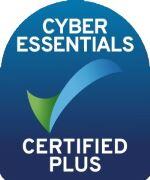Information security
Minimise governance risks with industry-leading security
Learn how Admincontrol protects your data with rigorous security policies, industry best practices, and internationally recognised certifications.

A strategic commitment to protect your data
We follow a structured, proactive approach to information security across all functions and layers, supported by an ISO 27001 certified Information Security Management System (ISMS).
Key elements of our strategy include:
- Security training and awareness programs for all employees
- Compliance with leading security frameworks and standards
- Building trust through transparency
- Regular independent audits and security testing
Certifications & compliance
We are proud to hold the most recognised certifications in information security, reflecting our dedication to safeguarding your data. Our entire business, business processes, and SaaS solutions are certified for ISO27001:2022
ISO27001:2022 certified
Certified by Det Norske Veritas (DNV), a globally recognised authority, ISO27001:2022 attests to our strong information security practices and provides our customers with confidence in our ability to manage data securely and responsibly.
The certification covers our entire business, processes, and products, ensuring that we meet the highest standards for information security.
SOC 2 Type II
Our SOC 2 Type II report, verified by Deloitte Norway, demonstrates our commitment to rigorous security controls and transparency.
Admincontrol's SOC 2 Type II Report covers the AICPA’s "Trust Services Principles and Criteria" for secure data processing and storage, and provides independent assurance that your data is handled with the highest standards of protection.
Demonstrating proficiency across these criteria is an attestation to the following security principles:
Security: the system is protected against unauthorised access, both physical and logical
Availability: the system is available for operation and use as committed or agreed
Confidentiality: information designated as confidential is protected as committed or agreed

Cyber essentials plus
The Cyber Essentials Plus certification demonstrates that we have implemented the security measures set by the UK’s National Cyber Security Centre to protect against common online threats.
Cyber Essentials Plus involves a more rigorous assessment process than the basic Cyber Essentials and includes an independent external audit.

G-cloud 14
Admincontrol is certified by the Crown Commercial Service (CCS) as part of its Digital Marketplace, enabling UK public-sector bodies to procure IT products and services through a faster, more streamlined process. This certification covers both Admincontrol's board management solution and virtual data room services.

General data protection regulation
We have implemented all necessary measures to ensure compliance with GDPR, both when acting as a Data Controller responsible for collecting personal data and as a Data Processor handling data on behalf of our customers.
Get in touch for more information or questions:
Multi-layered security protocols for complete protection
Admincontrol's platform integrates advanced security technologies to protect your data at every level.
Authentication & access control
Two-factor authentication
- Secure logins via SMS-based OTP or Authenticator App
eID authentication
- Strong identity verification for Nordic users
- Norwegian BankID
- Swedish BankID
- Danish MitID
- Finnish BankID (Finnish Trust Network)
Role-based access control (RBAC)
- Permissions aligned with user roles for strict access management
Encryption & data security
Encryption in transit
- All communication is TLS-encrypted (HTTPS with EV SSL)
Encryption at rest
- AES-256 encryption, with customer-specific encryption keys stored securely
Secure storage & disposal
- Dedicated, controlled infrastructure; certified media disposal
Insider risk & employee security
Background checks & screening
- Comprehensive vetting before employment
Administrative privilege control
- Only pre-approved, security-cleared personnel have system-wide access
Confidentiality agreements
- All employees sign binding agreements on data security and privacy
Data integrity & backup protection
Checksum validation:
- Ensures file integrity throughout storage and transmission
Multi-level backup strategy
- Daily full backups stored in secondary data centres
- Weekly incremental backups for optimised recovery
- Hourly transaction log backups for continuous data integrity
High availability & business continuity
Geo-redundant data centres
- Admincontrol operates across multiple secure geographically distributed locations
Infrastructure redundancy
- Every system is designed for high availability with failover mechanisms
Disaster recovery & business continuity plans
- Regularly tested to ensure rapid response and resilience
Risk & incident management
Proactive risk assessments
- Regular evaluations to identify and mitigate security risks
Incident response framework
- Documented procedures for swift resolution and prevention
Vendor and subcontractor compliance
- All vendors go through an initial assessment and are re-assessed as needed according to Admincontrol’s security policy.
- The level of assessment and frequency depends on the importance of the vendor.
- Many of our subcontractors are ISO27001 certified
Continuous security improvement
We believe that security is an ongoing process, not a one-time achievement. We invest in:
Security testing & audits
- Regular penetration tests aligned with OWASP Top 10
Security awareness training
- Mandatory training for all employees
Continuous monitoring & threat prevention
- 24/7 monitoring to detect and mitigate threats
Hear from our customer
Geomatikk's vision is to provide society uninterrupted access to critical infrastructure, so security is very much ingrained in our DNA. Knowing we have a board portal provider which has equally high standards on this aspect is reassuring. Furthermore, customer support is available 24/7 should there be any issues we need help with. We can confidently recommend Admincontrol to others.
Knowing we have a provider which has equally high security standards is reassuring.
Geir Hansen
Group CEO at Geomatikk